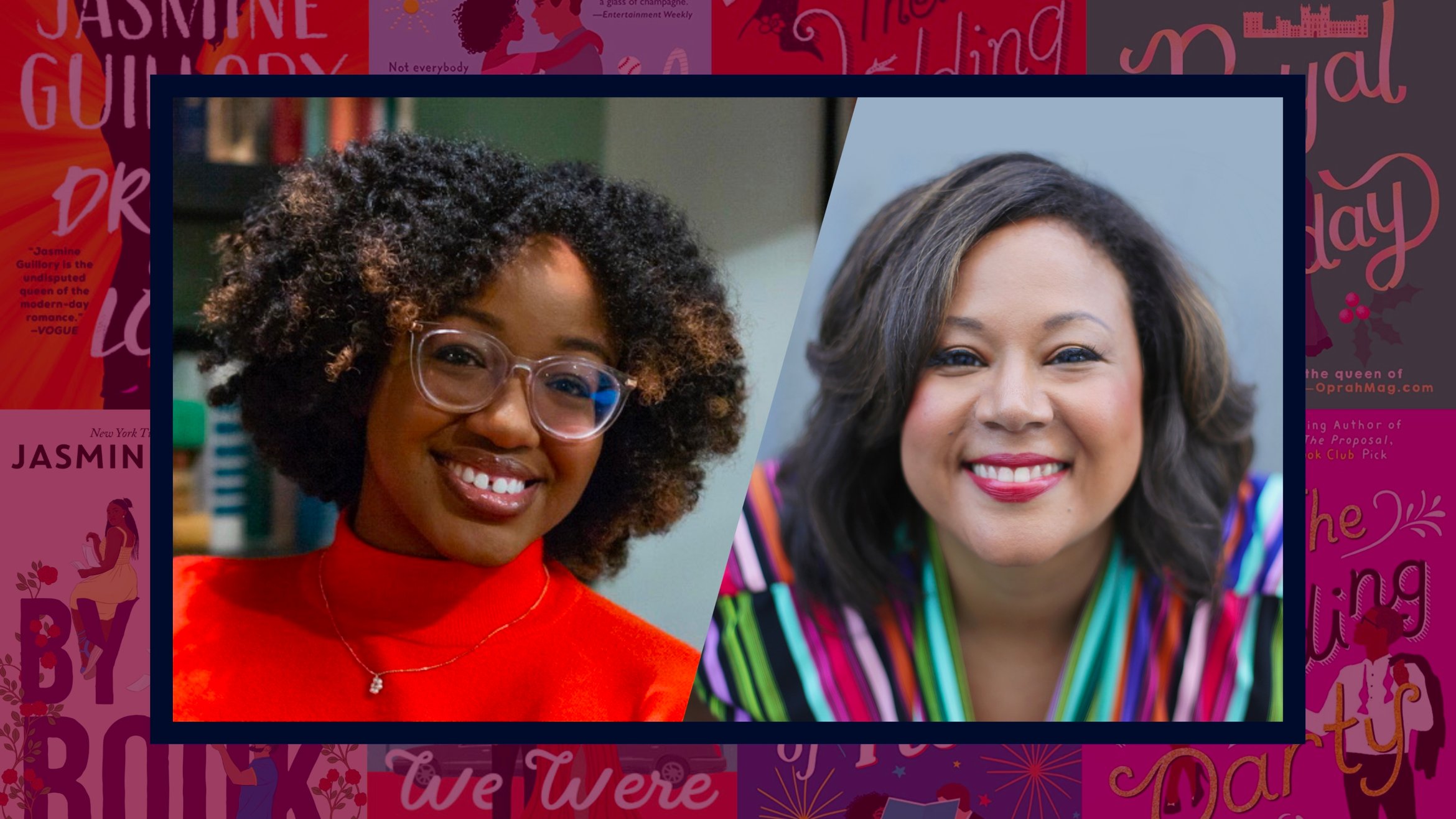More in this series
Publishing Is Finally Taking Romance Seriously—and Jasmine Guillory is Here For It
For our Romance Week series, Arriel Vinson interviews bestselling novelist Jasmine Guillory about the past, present, and future of the romance genre.
My first time reading a bona fide romance novel was for a college gender and sexuality course. It had all the classic tropes, like white characters who could afford to run off alone on a vacation at a whim. But I devoured it. I wasn’t used to reading books where romance was the focal point. After that class, I didn’t read the genre again for a while. It wasn’t until I went to graduate school for writing that I delved in again—I needed to understand my own writing, why love was always at the center, the craft of romance. I started with young adult romance, where the love was new and tender, without the grown-up issues.
The Wedding Date
Arriel Vinson: Do you think your approach to writing romance has changed as you’ve continued to write?
AV: In an article, you mentioned that you write characters who enjoy sex and that men have always been able to write about sex in any genre. How do you think the outlook on sex and romance has transformed since you’ve started writing?
AV: And you can see that across a few different genres now, too, which is so important. I notice that you read a lot of young adult romance or rom-coms as well. What impact do other genres or other media have on your writing?
What are different ways to tell stories that capture people’s attention and make them excited to hear what’s next?
AV: I love that. You can take inspiration from a few different places when you’re writing, and whether it ends up in the exact book you’re writing or not doesn’t matter—it’s having the knowledge of it. What does writing romance allow you to explore about people or the world or your craft that other genres may not allow you to explore in the same way?
AV: You contributed a piece to an anthology about Black love, and the book’s description says, “It hasn’t often been easy to find Black romance joyfully showcased in entertainment media.” Why do you think Black romance novels are finally getting their shine? It seems like romance is becoming more inclusive. What do you think has caused that shift?
AV: What other ways, if any, have you seen the genre change since you’ve started publishing?
AV: That’s so exciting to hear. I want to ask about another article, where you mentioned that you like to write characters who are less ashamed of their bodies. How do you think the conversation around body types in the romance genre has changed? Do you think that romance still has progress to make when it comes to being inclusive about body size?
AV: I’ve noticed that in other genres too, that theres more of an effort being made to be considerate of readers and get things right, just like you mentioned earlier about consent.
How do you think romance has changed with the heightened amount of dating apps? For most of the novels I’m reading, there’s still just a meet-cute. Dating apps sometimes aren’t even part of the equation. But how do you think the current way of finding love has changed how you write about romance, if at all, and the genre in general?
AV: Because I mostly read YA, I’ve been reading a lot of books that include text messages, and it’s always so fun to see how the different characters communicate or don’t. And it’s mostly that they don’t.
AV: Right. Thats just the way of the world, I guess. Is there anything else you want to add about the state of romance, where its been, where its headed, what you to see more of?
Arriel Vinson is a Tin House YA Scholar and Hoosier who writes about being young, Black, and in search of freedom. She earned her MFA in Fiction from Sarah Lawrence College. Her poetry, fiction, and essays have appeared in Kweli Journal, The Rumpus, Catapult, and others. Her work has also been nominated for Best New Poets 2020, Best of the Net 2019, and a Pushcart Prize. A Walter Grant recipient, she is also a 2019 Kimbilio Fellow and 2020 92Y Discovery Poetry Contest semifinalist.
Enter your email address to receive notifications for author Arriel Vinson
Success!
Confirmation link sent to your email to add you to notification list for author Arriel Vinson
More by this author
After Divorce at Twenty-Four, Lizzo Taught Me to Love Myself Again
"Juice" had the type of lyrics that forced me out of my solitude, whether I wanted to be out of it or not.






